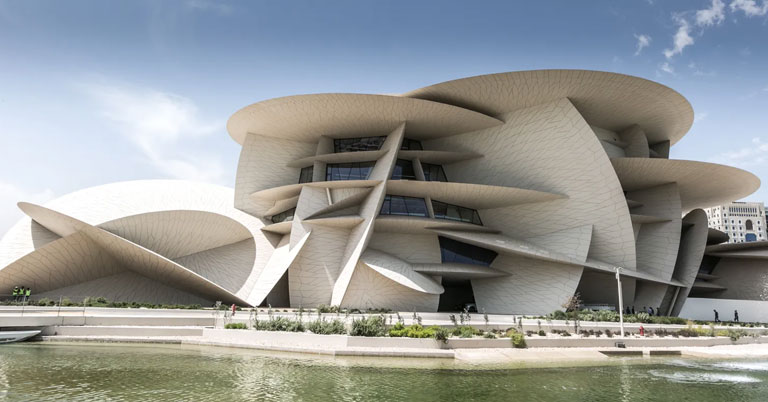
12/08/1945
Jean Nouvel, born in 1945 in Fumel, France, is an internationally renowned contemporary architect celebrated for his bold and innovative designs that often challenge traditional architectural conventions. Nouvel quickly established himself as a major figure in contemporary architecture through his creative approach and ingenious use of materials.
He began his career in the 1970s and co-founded the Atelier de Recherche et d’Action Architecturale (A.U.A.), a collective committed to architectural and urban innovation. His early works already demonstrated his inclination for unique and customized solutions tailored to the specific context of each project.
Among his most famous works is the Institut du Monde Arabe in Paris, inaugurated in 1987. This building is notable for its high-tech facade that uses photographic diaphragms to control light entry, inspired by traditional mashrabiya screens. Another iconic example is the Torre Agbar in Barcelona, a cylindrical structure that changes color depending on the daylight.
Nouvel also designed the Musée du Quai Branly in Paris, which incorporates vertical gardens and a fluid design to create an immersive museum space. Additionally, the Louvre Abu Dhabi, with its spectacular dome that creates a “rain of light” effect, perfectly illustrates his ability to blend architectural innovation with respect for cultural heritage.
Jean Nouvel is known for his creative use of materials and light, as well as his ability to seamlessly integrate his buildings into their surroundings. He is a strong advocate of contextual architecture, believing that each project should be unique and reflect its cultural and geographical context.
In addition to his architectural achievements, Nouvel has received numerous awards, including the prestigious Pritzker Prize in 2008, often considered the Nobel Prize of architecture.
